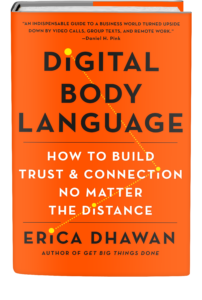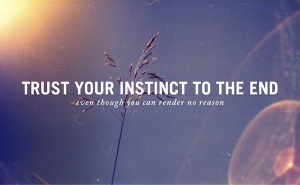I used to think success was all about goal-setting and alignment. If I didn’t achieve my goals, I was off-path, I needed to be re-directed again.
But a conversation with leadership researcher Marcos Salazar changed this for me. Marcos described how alignment is not always what is needed. Sometimes it is the creative things we do where we wander that allow us to come back to something profound when we connect the dots later. Sometimes we have to follow our instinct, rather than just follow what we wrote in a goals statement. There is an important balance between these two.
When did you trust your instinct, fall ‘off-path’ and only later connect the dots?

